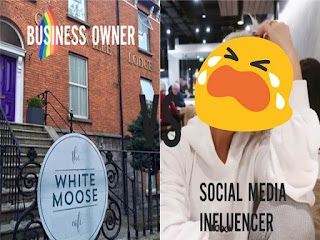Review of The Post
This chronicle of the Washington
Post breakthrough on the American national scene and the publication of the
infamous Pentagon Papers by both the New York Times and the Washington Post
during Nixon’s first term could have also been told under the Post’s current
slogan Democracy Dies in Darkness.
The movie tackles five main
themes
The contents of the Pentagon
Papers
The classified
documents show that the American decision making process when it came to the
war was flawed and that numerous US administration knew for a fact that the
Vietnam war can’t be won, meaning administrations kept sending young American
to an absurd and unnecessary death.
[The US
administrations] violated the Geneva Convention, they lied to Congress, they
lied to the public. They knew we couldn’t win and still sent boys to die.
Seventy percent of those boys [died] just to avoid [the US] being humiliated.
The mission of the press
The publication
of the Papers started with the introduction of the Post on the Stock Market.
The prospectus allows the investors to withdraw in case of extraordinary
circumstances occurring in the week following the company going public. When
the Post was about to publish its first article related to the Papers, some
were arguing that the move could lead the department of justice to issue an
injunction, which could be viewed by bankers as extraordinary circumstances,
allowing them the withdraw and thus to sink the Post. To overcome this menace,
Katherine Graham goes back to the mission of the Washington Post that is also
mentioned in the same prospectus. The Post is about outstanding news
collection and reporting and will be dedicated to the welfare of the
nation and to the principles of a free press.
Ben Bradley argues
that giving the Nixon administration a free pass isn’t caution but cowardice
and draws a tight correlation between the freedom of the press – as well as
journalists and the press rising up to the difficulties and challenges of their
time – and the future of the country. It will look like we were afraid. We
will lose. The country will lose. Nixon wins this one, and the next one, and
all the ones after that because we were afraid, because the only way to assert
the right to publish is to publish.
The freedom of the press
Nixon’s
administration tries to legally block the publication of the Pentagon Papers
issuing an injunction against the New York Times and The Washington Post,
raising the question of the extent of the effective extent of the First
Amendment.
The problem with
the Pentagon Papers wasn’t just that they were leaked but that they were also confidential
documents obviously harmful to the US government as well as to the two major
political parties, since the behavior of both democrat and republican administrations
is chronicled. McNamara served as secretary of defense under democrat John F.
Kennedy and democrat Lyndon B. Johnson. Harry Truman was also a democrat. Dwight
D Eisenhower and Richard Nixon were both republicans. This confidentiality is
used as an argument in the administration’s case in front of the Supreme Court.
Why would other countries talk to us in confidence if secrets like this can
be leaked? But it is really the damage these Papers could make the
presidency, and by extension the president, look bad. The Post and the NYT’s
decision to hold the government accountable is depicted as throwing the government
under the bus – if the president can’t keep secrets, he can’t govern –
and putting the integrity of the presidency at stake. But is protecting
the presidency and the president the press’ mission and job or are the freedom
of the press and the quest of the truth more important? The Supreme Court
renders a six to three judgment considering that the Nixon’s administration
failed showing justification for the imposition of such a restraint or proving
that the publication would cause grave and irreparable danger. Justice
Hugo Black explains his vote in a scathing review of the origins and need of
the First Amendment.
The press was to serve the governed, not the governors. The
Government's power to censor the press was abolished so that the press would
remain forever free to censure the Government. The press was protected so that
it could bare the secrets of government and inform the people. Only a free and
unrestrained press can effectively expose deception in government. And
paramount among the responsibilities of a free press is the duty to prevent any
part of the government from deceiving the people and sending them off to
distant lands to die of foreign fevers and foreign shot and shell.
The emancipation of Kay Graham
Katherine Graham’s
evolution is hypnotizing. The Washington Post was bought by Katherine’s father,
Agnes Ernst Meyer, who gave it later on to her husband, Phil Graham, instead of
giving it to her. It’s only after her husband’s suicide that she will head The
Post. Far from troubling me that my father thought of my husband and not me,
it pleased me. In fact, it never crossed my mind that he might have viewed me
as someone to take an important job at the paper. Her father’s decision is
constantly brought up by Arthur Parson in repeated attempts to undermine her
authority and depict her as lady who throws a great party but who doesn’t
have the resolve to turn serious profit. Bradlee, on the other hand, doesn’t
see Meyer’s decision as anything more as the product of the times he lived in
and not a proof of Kay’s inability to handle the job.
Katherine’s life
and ordeal are summarized by Tony Bradlee, Ben’s wife, who explains to her
husband why Kay’s decision of publishing the Pentagon Papers is braver than his
decision of publishing the exact same papers. That’s brave … but Kay, Kay’s
in a position she never thought she would be in… when you’re told time and time
again you’re not good enough, your opinion doesn’t matter as much, when they
don’t just look past you, when to them, you’re not even there, when that’s been
your reality for so long, it’s hard not to make yourself think it’s true. So to
make this decision, to risk her fortune, and the company that’s been her entire
life, well I think that’s brave.
But Kay won’t
just stand up for the company that’s been her entire life; she will eventually
stand up for herself. This is no longer my father’s company, it’s no longer
my husband’s company. It’s my company. And anyone who thinks otherwise probably
doesn’t belong on my board. The depth of this tirade isn’t in how well it
is written or how great Meryl Streep delivered it but in the realization that
it actually happened, that the woman who oversaw the Washington Post’s most
iconic period reclaimed her life at the same moment her company became one of
the illustrative examples of the freedom of the press.
Kay’s decision to
publish the Pentagon Papers resonates throughout the United States and the next
day other newspapers follow in her lead and publish the Papers.
The menace of Nixon
Nixon banning Judith from
covering his daughter’s wedding might seem like an insignificant incident. Judith
had previously been mean to the first daughter and Nixon was just a retaliating
father. But Nixon was also the president and banning Judith was actually the
president banning a journalist and interfering with the freedom of the press.
Throughout the movie, Nixon’s tendency for secrecy, his pettiness and his
disregard for the First Amendment are underlined. Time and time again, the
Washington Post’s reporters seem to be anticipating Watergate, getting ready
for “a next time”. The movie ends exactly where All The President’s Men starts,
with the robbery at the Democratic National Committee, the incident that will
eventually be known as Watergate and stain Nixon’s presidency and his legacy.
The timing of the movie is to be
mentioned. The free press is today under constant attack from the Republican President
of The United States. From Fake News, to the bickering, to treating Jim
Acosta just like Nixon treated Judith, to the lying, to the suing threats and
the real desire of reviewing the libel laws, Donald Trump is a menace. On the
other hand, American women are going through a new and long awaited wave of
real emancipation. The 2016 presidential election showed that America isn’t
over sexism! Women are marching not only against the government but also
against the system. There is a nationwide call for women to get into politics,
to run for office, and to help make the future they want.
Finally, I hope local media will
follow Kay’s lead and stop reading the news and start writing it. Time has come
for reporters to take over our outlets. Why the anchor was laughing isn’t an
article I want to read. Where another journalist went dancing isn’t an article
I want to read. How great this or that politician isn’t an article I want to read!
It’s time we get our own Ben Bradlee, our own Ben Bagdikian, our own Bob
Woodward and our own Carl Bernstein.
SO, WHY DO YOU THINK THEY REALLY WANTED TO BAN IT?






Comments
Post a Comment